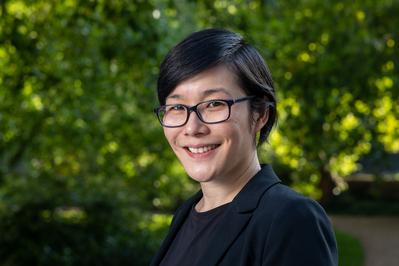Rachel Chan

Tell us about your background and why you decided to become a barrister.
My parents came to the UK when they were in their teens. They had a Chinese takeaway in a small village. Other than my cousins, my siblings and I were the only ethnic minorities in school, and from a young age I was told I had to work harder than everyone else in order to prove myself. I did, and to everyone’s surprise (and mine!), I made it into my local grammar school where then I was decidedly less than mediocre. Although interested in the law, it never occurred to me that I could be a barrister, particularly with my background. I recall my uncle telling me that he couldn’t because his English wasn’t good enough. I couldn’t understand this – he was so clever! In a way, that conversation was a turning point and made me all the more determined to make it to the Bar.
Did you face any obstacles along your journey to becoming a barrister and how did you overcome them? Have any of them persisted since becoming a barrister?
There were two main obstacles along my journey to becoming a barrister. The first was financial, which was fortunately not insurmountable with various loans and three part-time jobs whilst studying at City University. The financial difficulties continued into the early years of tenancy, exacerbated after I had children, and did not ease until much later on in my career. The second obstacle was more difficult to overcome and occasionally still plagues me to today at 17 years' call: imposter syndrome and wondering whether a girl from a take-away can truly be good enough to do the job.
What opportunities, support and encouragement did you receive along your journey to becoming a barrister?
There were people along the way who thought I was far too ambitious, but I was incredibly fortunate that my family were supportive of my decision to become a barrister. There are three schoolteachers I remember who were particularly encouraging. One history teacher even gave me the opportunity to defend the Catholics in a Gunpowder Plot Mock Trial when I was in Year Eight, knowing that I wanted to be a barrister!
The greatest help afforded to me, however, came from Lincoln’s Inn, which I joined in my second year of university back in 2002. I had a mentor and joined the debating society, which both really helped grow my confidence and advocacy skills.
What is the most rewarding thing about being a barrister; has life at the Bar met your expectations?
The most rewarding part being a family barrister is representing people every day; many of whom are the most vulnerable in society and often during the most difficult time of their lives. I am passionate about giving people a voice within proceedings and fighting their corner for them. It can be a real emotional rollercoaster. When it gets low, it can get very low, but occasionally there are happy endings! The Bar has exceeded my expectations and I can’t imagine myself in any other profession.
How do you use your experience of coming to the Bar from an under-represented background to support those seeking to do the same, and/or why is it important for barristers to contribute in this way?
I have previously mentored a number of schools for the National Mock Trial Competition and have enjoyed being able to visit and share my experiences of my journey to the Bar. One school had a high number of ethnic minorities and I remember their surprise at seeing a young female Chinese barrister coming in to help them. I am a prolific Tweeter and advocate for greater diversity at the Bar; my personal DMs are always open to those who want to contact me to speak to me about my experiences.
The Bar is still far from being accessible to many. I think barristers owe it to the next generation of barristers to fight for a more accessible Bar and one that truly represents the ever-diverse population of England and Wales.
How do you think the challenges around social mobility at the Bar which face aspiring barristers today could be addressed?
There are two ways in which the challenges around social mobility at the Bar can be addressed.
First, through chambers taking a look at themselves and asking questions such as what do their chambers look like, how representative of society are they, and whether their recruitment practices are truly accessible and encourage those from under-represented backgrounds to apply.
Second, through more work at grassroots level by better education, resources and information to the areas that need it. It is often the schools that have better resources and understanding that access the help that is offered. The Bar needs to be better at targeting under-represented areas and extending that extra assistance to them to level the playing field.
What advice would you give to someone from an under-represented background, seeking to succeed at the Bar?
Work hard. Do your research and homework. Access information from as many sources as possible. There are always people on legal Twitter who are able and willing to answer questions. To steal the words of Dumbledore: “help will always be given… to those who ask for it”.
Rachel Chan is a barrister at 42 Bedford Row